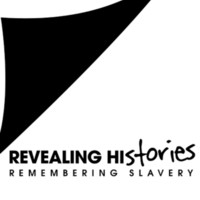
Revealing Histories: Remembering Slavery
The Revealing Histories: Remembering Slavery project sought to uncover the North West's involvement in the slave trade (and the consequent social and economic effects of this involvement) and the region's contribution to the abolition of the transatlantic slave trade and colonial slavery. Eight museums and galleries across Greater Manchester collaborated to commemorate the lasting legacies of the transatlantic slave trade. The participating venues were: Bolton Museum and Archive Service; Gallery Oldham; Manchester Art Gallery; The Manchester Museum; Museum of Science and Industry; People's History Museum; Touchstones Rochdale; and Whitworth Art Gallery. A collaborative website and a programme of exhibitions, trails, performances, films and events took a new look at the collections of these museums and galleries and the buildings in which they are housed, revealing hidden histories of the region's involvement in the slave trade. The project also examined slavery's contemporary legacy and relevance.
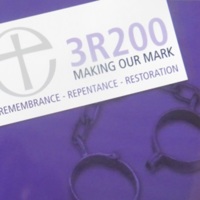
Making our Mark: Remembrance, Repentance and Restoration in 2007
This project was the Church of England’s official response to the bicentenary, as CMEAC (established by the Archbishops’ Council) explored the Church’s multi-faceted role in the history of slavery in Britain. Making our Mark focused on connections with local communities, opening access to heritage, and raising awareness of the legacies of slavery. The project had two main strands. The first was a set of regional dialogues – the Bicentenary Hearings – which represented local opportunities for discussion about experiences of slavery, as a way to make new connections between past and present, education and action. The Hearings took place in Liverpool, London, Birmingham, Hull and Southwark in February and March 2007. The second strand was the Walk of Witness, a heritage trail through London on 24 March 2007. Participants included government representatives, leaders in the Church of England, social justice organisations, ecumenical and multi-faith partners, and schools. A pack was produced for schools, including a DVD with footage from the Walk and Hearings.
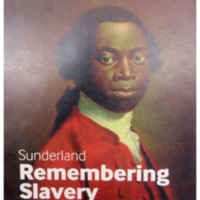
Sunderland Remembering Slavery
Remembering Slavery 2007 involved museums, galleries and other cultural organisations across the North East of England in a programme of exhibitions, events, performances, lectures and activities to explore the themes of slavery and abolition, and identify connections with the region.
In Sunderland, the Museum and Winter Gardens hosted a varied programme of activities under the Remembering Slavery 2007 umbrella, including African drumming sessions, African inspired textile crafts, poetry workshops and storytelling. There were also guided walks around the sites associated with James Field Stanfield, the leading Sunderland campaigner against the slave trade. Elsewhere in the city, The Power of Words: an Image of Africa Past and Present was a creative writing project in collaboration with the Sunderland African Association. Participants worked with poet and writer Sheree Mack to produce poems exploring slavery and its relevance in contemporary times.
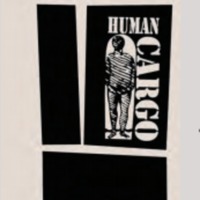
Human Cargo: The Transatlantic Slave Trade, its Abolition and Contemporary Legacies in Plymouth and Devon
Human Cargo was a partnership project between Plymouth City Museum and Art Gallery, and the Royal Albert Memorial Museum, Exeter. The project consisted of two main components. The first was a historical exhibition, which explored the development of the transatlantic slave trade and, in particular, the role of Plymouth as a port, the involvement of the City's dignitaries and the South West's links with the abolition movement. The second part was a contemporary art response to modern forms of slavery and historical legacies, including the flower picking trade, sweatshop labour and the Fair Trade Movement. This work was newly commissioned and included audio visual pieces, installations, hand-printed wallpaper and participatory objects. A variety of events and activities took place alongside the exhibition including education workshops, performances, African music and storytelling activities, and Elizabethan House re-enactment sessions.
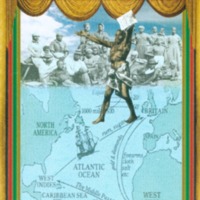
Leeds Bicentenary Transformation Project
This collaborative community initiative celebrated African and Caribbean culture in Leeds, with a focus on commemorating the Abolition Act by 'highlighting African achievement, liberation and aspirations'. New exhibitions, publications and resources were produced and over 100 bicentenary events organised under different themes: Education and Museums; Arts and Carnival Culture; Churches and Abolition; Legacy; Black History and Community Development; Media and Communications. Highlights included the photographic exhibition and pamphlet 'From Abolition to Commonwealth', which remembered indentured labour in Africa and the Caribbean after 1807, and the 40th anniversary of Leeds West Indian Carnival, with themes that highlighted heritage, liberation, respect and freedom. Project outputs included an education pack, black history classes, concerts, church services, lectures and performances.